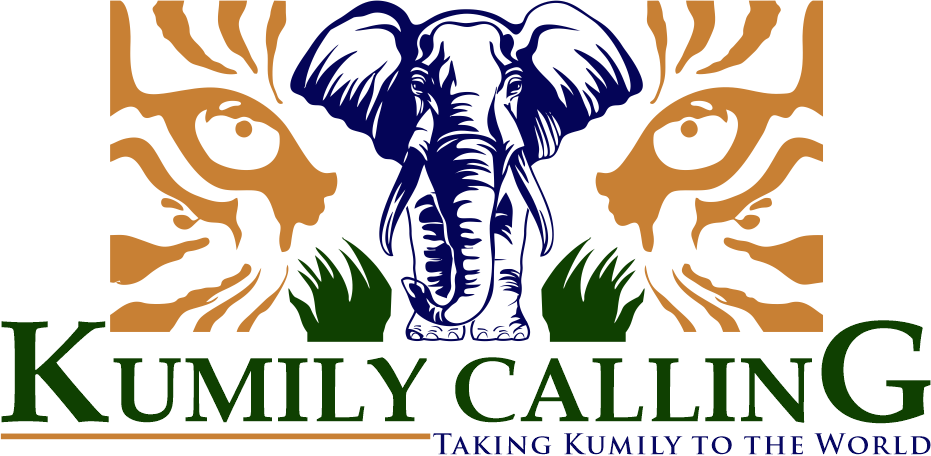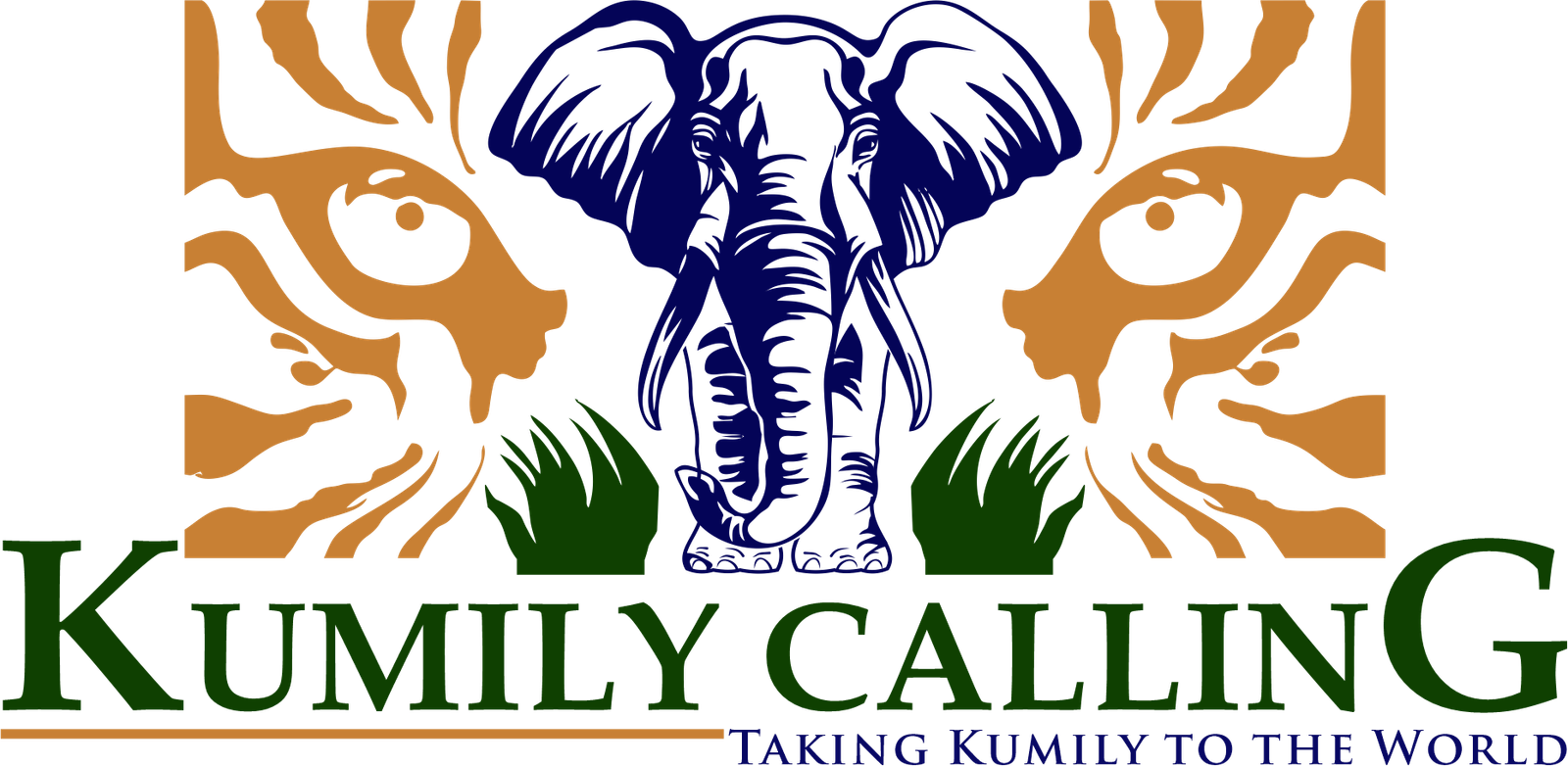By Anjaly Rajendran
In South India, there exists a place where kingship still exists and a King with sceptre and crown continues to rule his people. Welcome to Kovilmala (Kozhimala) of Kanchiyar Gramapanchayath in Idukki District which is home to the Mannan Tribal Community. The Mannan Community is the only Adhivasi tribal dynasty with kingship currently existing in South India. The Mannan are also found in Mannankuddy of Kumily Panchayat.
The official symbols of the king of the Mannan Community are the turban embedded with Conch and lined with pearls, straw bracelets worn on his hand, Adhihara dand (sceptre of authority), arm band on shoulder, etc
The Mannan Tribal Community is one of the 2tribal dynasties which still exist in India. The current King of the Mannan Community is Raman Rajamannan who reigns over his people from his official residence located at Kovilmala.
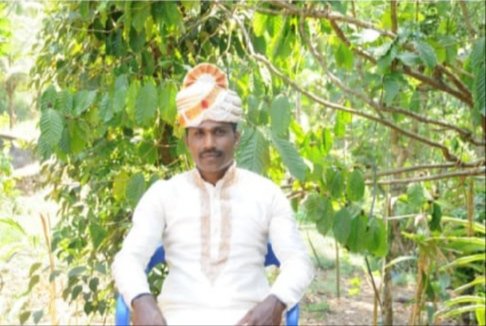
Raman Rajamannan is the seventeeth King of the Mannan Community. It was from the time of the fourteenth King, Nayan Rajamannan that the world came to know about this tribe to a significant extent. He remained King for a decade and maintained excellent relationship with the outside world. The single teacher school established in Kanchiyar through his intervention is today a Tribal School. It was only due to his efforts that the Mannan community has now embraced education. The present Raja Raman Rajamannan is a graduate from the MG University.
After the death of Nayan Rajamannan in March 1995, Thevan Rajamannan became the King. After his death, Aryan Rajamannan, who was only 26 years old, took over as the King. After Aryan Rajamannan died in 2011, Raman Rajamannan was crowned king in 2012.
The life of the Mannan Community is closely related to the Tamil Culture. This is evident in their Language and customs. It is believed that they were originally from Tamil Nadu and later migrated to Idukki during the period of Poonjar Rajavamsham (kings). Oral tradition has it that they were given tracts of forest lands as a reward by the Pandya King of Madurai for serving him in the battle against the Cholas. He gave them the title of Forest Chiefs, and land holdings after the war in the bordering regions of the current State of Kerala.
The Mannan Community consists of 52 Kudi or branches of the tribe. The Mannan Community has a spiritual connection with the soil and agriculture. They speak a dialect similar to Tamil but without a script.
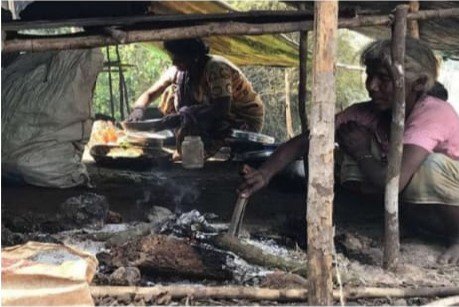
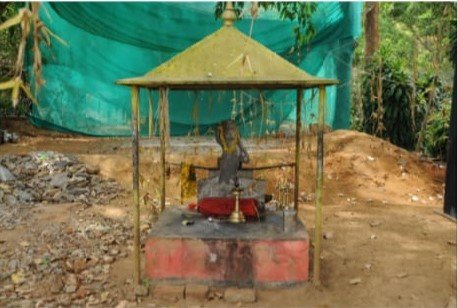
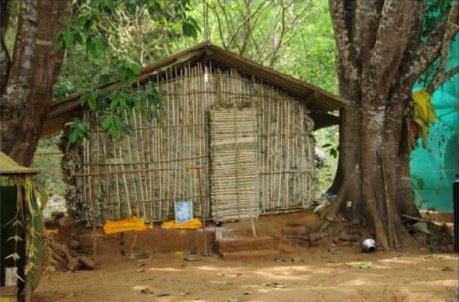
The Mannans are not vegetarians but they do not consume beef or pork. They are mostly rice eaters. They prefer matrimonial alliances within their own extended families (cross cousin marriages). Their primary occupation is agriculture including coconut harvesting, cultivation of herbs, etc. With the passage of time the Mannan are now exploring other professions and are mostly serving as labour in a variety of occupations.
The entire life and customs of the Mannan Community revolve around birth, death, marriage, agriculture, etc. Their main celebrations include Kalavoot, Meenoot and Mutthiamman Festival.
Kalavoot Festival
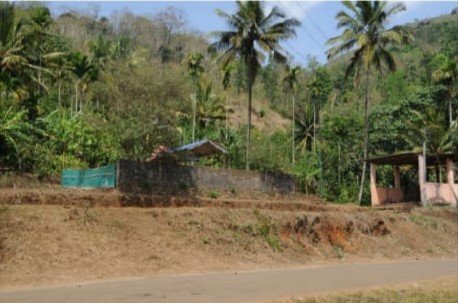
Kalavoot is nothing but feeding the soil or watering Mother Earth.
‘Kala’ means land or soil and ‘Oot’ means to feed. Kalavoot can be considered as a part of “Uchavaranushtanam” or their traditional beliefs. The objective of celebrating Kalavoot or feeding the Earth is to replenish the soil which provides them with everything they need.
The Mannan community has been celebrating Kalavoot since the beginning of collective farming. Kalavoot is performed in the month of March and April for two days immediately after the harvesting season.
The dates of the Kalavoot festival are determined by the Kodanki of the tribe who is the official fortune teller and advisor to the Raja (king). Once the Kalavoot date is announced by the Kodanki, the women of the tribe become busy with preparations for the festival. A lot of preparatory work is carried out including the harvesting of paddy, collection of firewood, mat making, weaving of panambu, and baskets along with making of vatti, kuda (earthern utensils) and other household items.
Kalavoot takes place on the day of Velutavaavu or Vattarinal (tribal names for the Full Moon Day). It is also a day when all the members of the tribe are given equal importance. A portion of the grain they harvest is offered to appease the Mother Goddess. They pray to the Goddess to protect their crops and cattle from the wildlife and from nature’s destruction.
Meenoot Festival
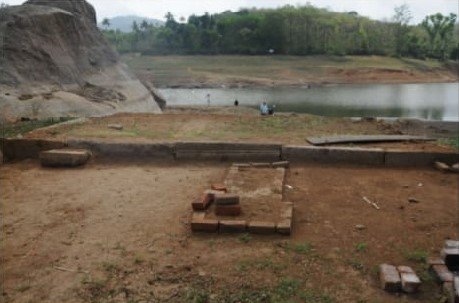
Meenoot is nothing but the feeding the Fish.
Meenoot is the ceremony that takes place after Kalavut. The ceremony takes place at the Lord Ayyappan Temple located on the banks of the Periyar River. It is believed that the River Periyar, who nurtures the tribe with its water, will come to Lord Ayyappan with the harvest from the Kudi (householders of the tribe). They will be offered with prayer. This offering to the deity is called ‘Panchavadi’. Panchavadi is made of rice soaked in coconut milk. Panchavadi is offered by the devotees who keep it on their palm and submerse it in the river. If a golden fish comes and eats it out of their palm then it is believed that the forthcoming year will be a prosperous and blessed year with good harvest and good health.
These ceremonies continue unto this day and are a sign of their bonding with the river and the Lord Ayyappan who rules the forests.
The Kanchiyar Mutthiamman Festival
Earlier the festival was held by the residents of Kovilmala. As the migration increased, the Mannan Community migrated from the Kanchiyar Temple area to the forest regions and other parts of the world in search of employment. In the days before the exodus, the festival was celebrated with great fanfare. Mutthiamman is representative of their favourite deity, Madurai Meenakshiamman. In earlier times, festivals such as Kalavoot were also performed in the Kanchiyar Mutthiamman temple.
Kanchiyar Mutthiamman is worshiped by the community as the daughter of Madurai Meenakshi Amman, who is the primary Goddess along with 42 minor deities placed around the temple. Pounded rice prepared from fresh green grain is offered to the Goddess. This ceremony is known as Mutthiamman Oot and is a symbolic offering of their harvest to the Goddess.
Muthiamman is considered to be the Grandmother of their tribe who is also addressed as “Thatha” and is said to have come along with them when they arrived from Madurai.
The Vathi who are the heads of the 52 kudis comprising the Mannan tribe along with the Plathis (the Priests of each Kudi) are the main organizers of the Mutthiamman festival. The festival is held for seven days at Kanchiyar.
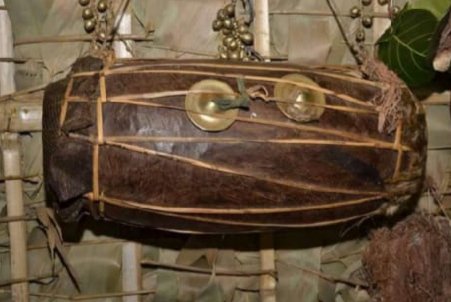
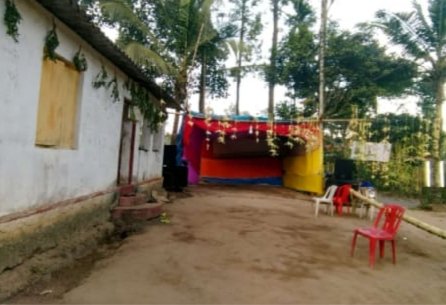
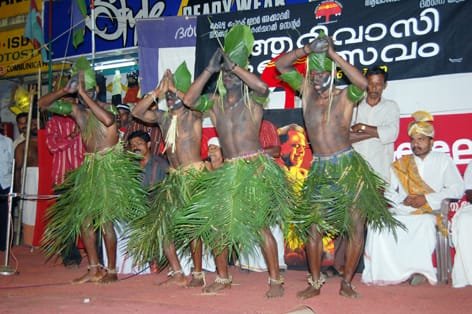
The ancient theatre art form known as “Koothu” is staged after special poojas in front of the Mutthiamman’s Temple. The theme of the Koothu – an art form that dates back to the Tamil Sangam period depicts the “Kannagi – Kovalan” story found in the ancient Tamil Epic “Chilapathikaram”, one of the five great epics of Tamil literature.
The life of the Mannan and their culture has been altered hugely during the second half of the twentieth century. Over the passage of time Mannan’s have increased their interaction with other communities and this has diluted their language and other customs and rituals.
Most of the tribals who once used to earn their living by collecting forest resources and other agricultural activities have now become labourers who are being exploited in Society. The current generations of Mannans are gradually losing touch with their roots and heritage.
Those who once were the Kings of the Forests now appear to be slaves…
